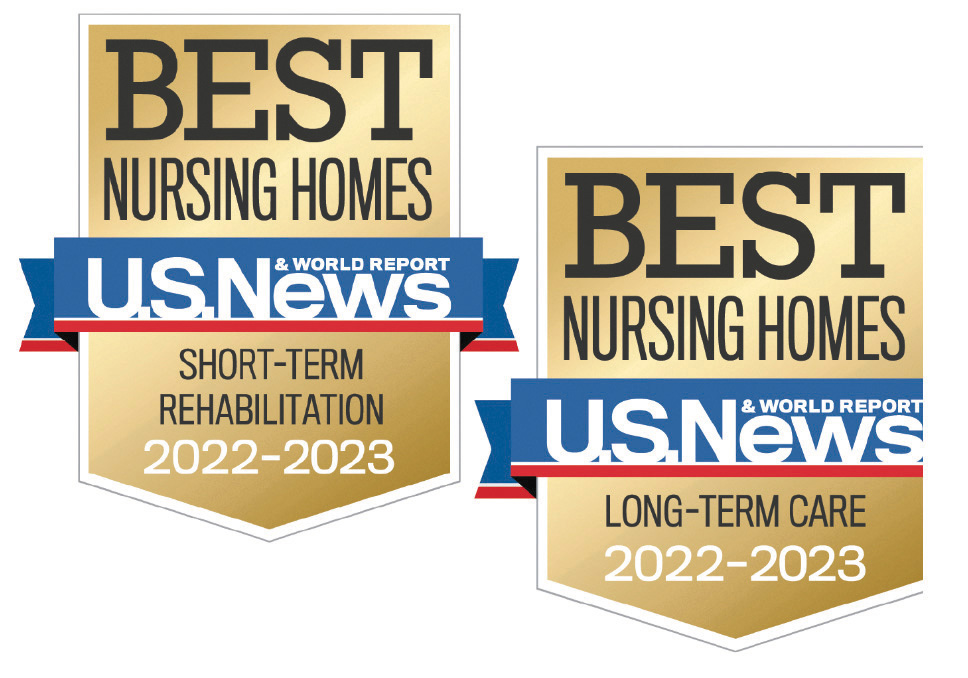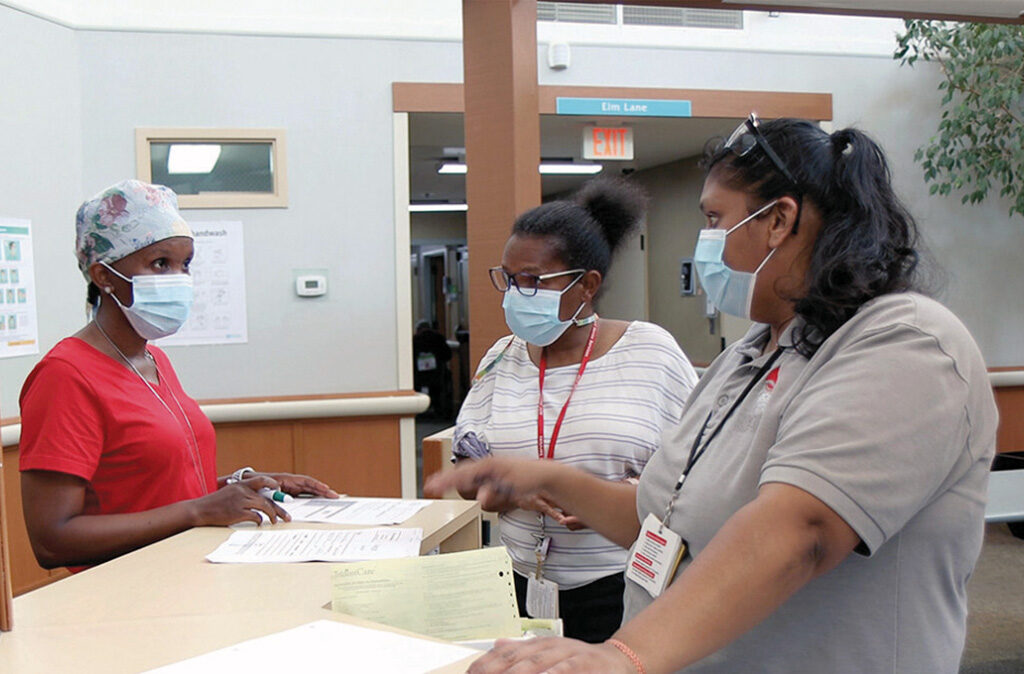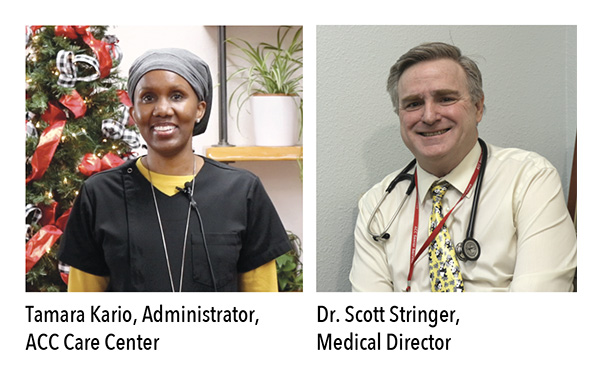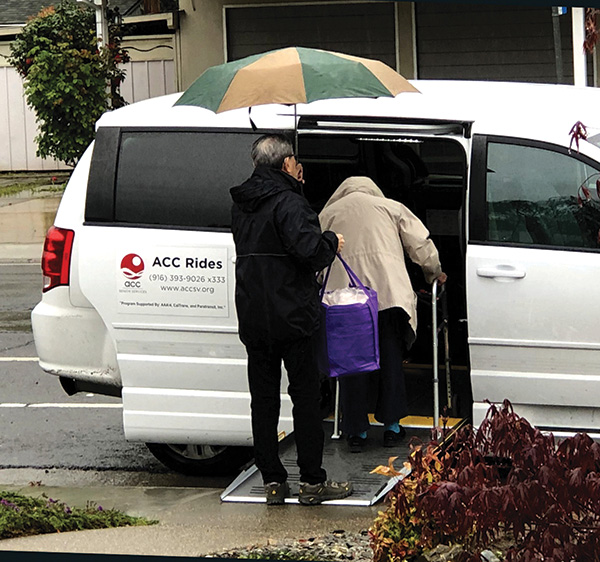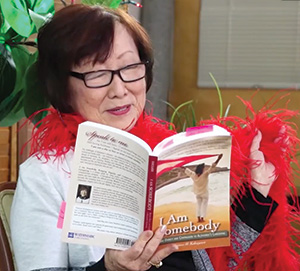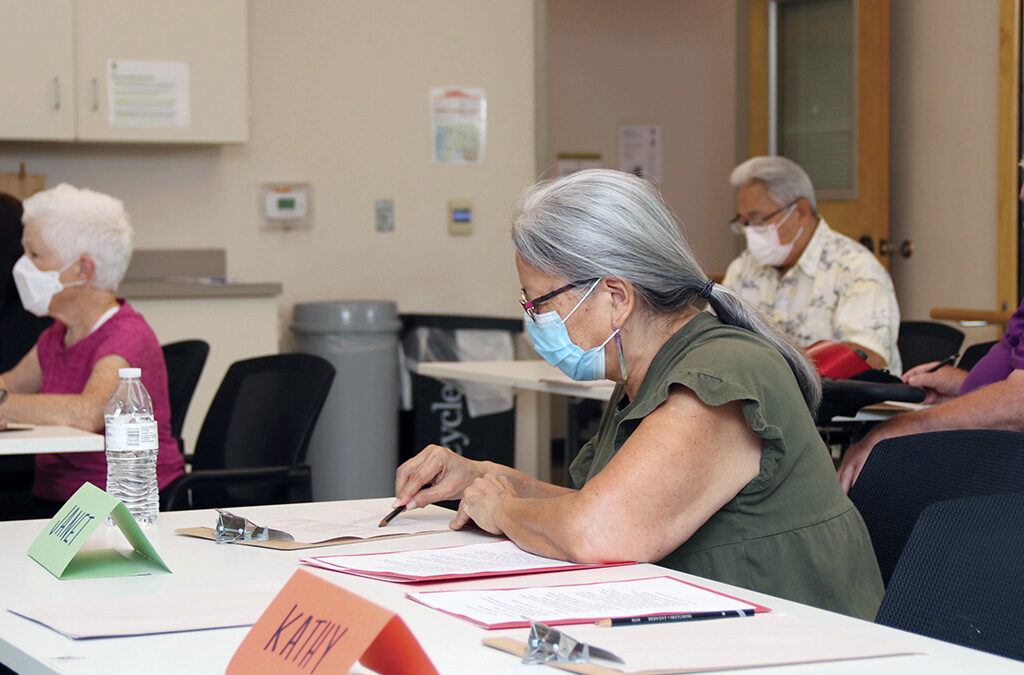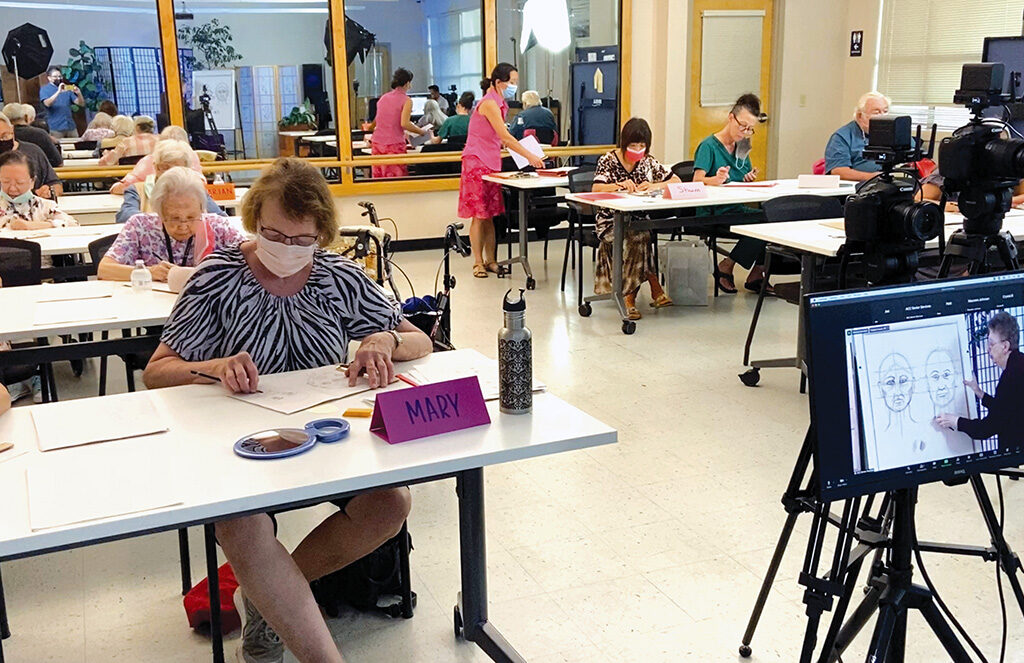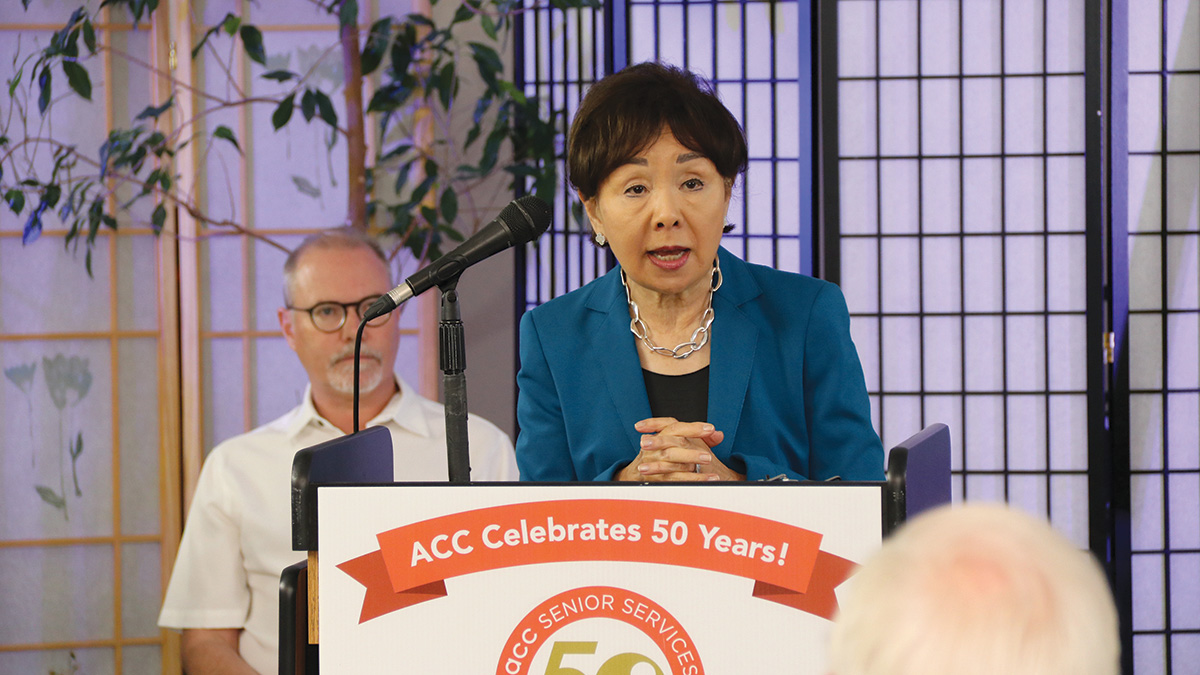By Jean Shiomoto, ACC Board Chair
Happy New Year! ACC’s 50th anniversary is in the history books. Today, we have so much to build on and so much to look forward to. It couldn’t be more exciting. We’re entering a future shaped by new technologies, social trends, and new ways of aging unlike what our parents experienced. How will ACC evolve in the next 50 years to meet the needs of the growing older-adult population? We’ll start 2023 by looking at some simple answers.
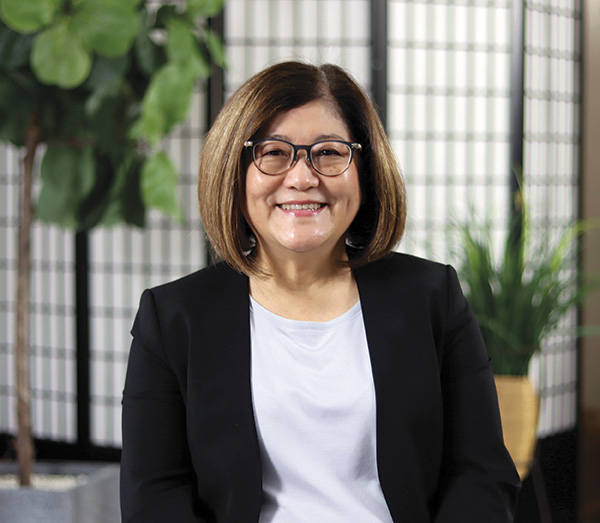
The pandemic made it clear that maintaining our health and social connections is important for our well-being. Losing one or both of these is akin to losing our freedom. During the great shutdown, the entire population felt the brunt of being isolated. The loss of 1.1 million lives in the U.S. to COVID-19 underscored the importance of prevention. In a rare moment, mainstream society experienced the insecurities that our most vulnerable seniors endure all the time.
Starting with the ACC Ohana Walk last September, ACC began innovating ways to improve health and social connections for people of all ages. The event brought together younger and older generations to celebrate health in an Ohana (family) environment. Several walkers were in their 90s! ACC sees the future of aging as a multi-generational activity, where people develop supportive relationships with others through every stage of life.
With this in mind, we are exploring a new initiative called ACC Wellness Park. We are looking to develop the grassy field behind our main campus building into a multi-use indoor/outdoor venue for health and wellness programs. The idea was first presented at our Big Day of Giving Telethon last May. New revenues would be generated from health plans and other organizations that would contract with ACC to provide beneficial services to their members. We are currently in discussions with one healthcare company to provide contracted transportation and other supportive services offered at ACC Wellness Park.
ACC’s 50th Anniversary Gala was held in October in Elk Grove. More than 200 people from every decade of ACC’s history attended the event. Congresswoman Doris Matsui and Lieutenant Governor Eleni Kounalakis regaled us with stories about their families’ most memorable moments with ACC. Koichi Mizushima and his daughter, Ellie, sang two beautiful duets. Gloria Imagire, Ted Fong, and yours truly recounted stories from ACC’s past to a delighted audience. A big thank you to our emcees, Lonnie Wong and Dani Lee, and to Jean Chong for chairing the Gala Committee. See page 16 for the Gala highlights.
2023 is the 20th anniversary of ACC Rides. Founded during the tenure of then-CEO Donna Yee, ACC Rides now serves 13 zip codes and has earned numerous awards. Virginia Wieneke, the Program Manager, has been with ACC Rides from its inception. Virginia and her team have developed a compassionate service culture that has become the hallmark of ACC. Virginia shares her thoughts in this recent article.
ACC closed 2022 with a significant financial loss. This was due to staffing shortages in all our senior living communities brought on by the competitive labor market. Two neighborhoods or wings at ACC Maple Tree Village (MTV) cannot be opened because of the staffing shortage. ACC’s financial loss was exacerbated by the closure of Azalea Lane at the Care Center for renovations. In the past, our other communities have brought in the bulk of the revenues that went into our savings, cost-of-living increases, and new ACC projects. This has not been the case during the pandemic. The good news is that the state has just approved the re-opening of the 27-bed Azalea Lane at the Care Center for short-stay residents.
Our financial recovery will continue well into 2023. Occupancy at ACC MTV Assisted Living stands at around 67%, not high enough to be in the black and cover the debt service on the bond secured to build MTV. As we build up the staffing, we need your help in referring people to ACC so we can close the gap. MTV is a wonderful, brand-new facility with a family-like culture and lots of enrichment activities. Residents can also visit ACC’s main campus for classes, workshops, and social activities. For more information about ACC Maple Tree Village, visit accsv.org/mtv.
ACC’s Board of Directors has undergone a few changes. Jeffery Hiratsuka, Debi Llata, and Chiang Wang are stepping down from the Board. Joyce Iseri will be a returning Board member. I would like to thank Jeffery, Debi, and Chiang for their service to ACC.
Finally, I’m announcing to the community that Darrick Lam, ACC’s President and CEO, has resigned from ACC Senior Services. He has been on leave since September due to a loss in his family. The ACC Board of Directors has begun the search for a new President and CEO to lead ACC. We’re immensely grateful for all the contributions that Darrick made during his five years with ACC. You can read Darrick’s Farewell message here. I want to thank our staff, volunteers, donors, program participants, community partners, and Board members for their support over the past four months. Best wishes to everyone in 2023!



